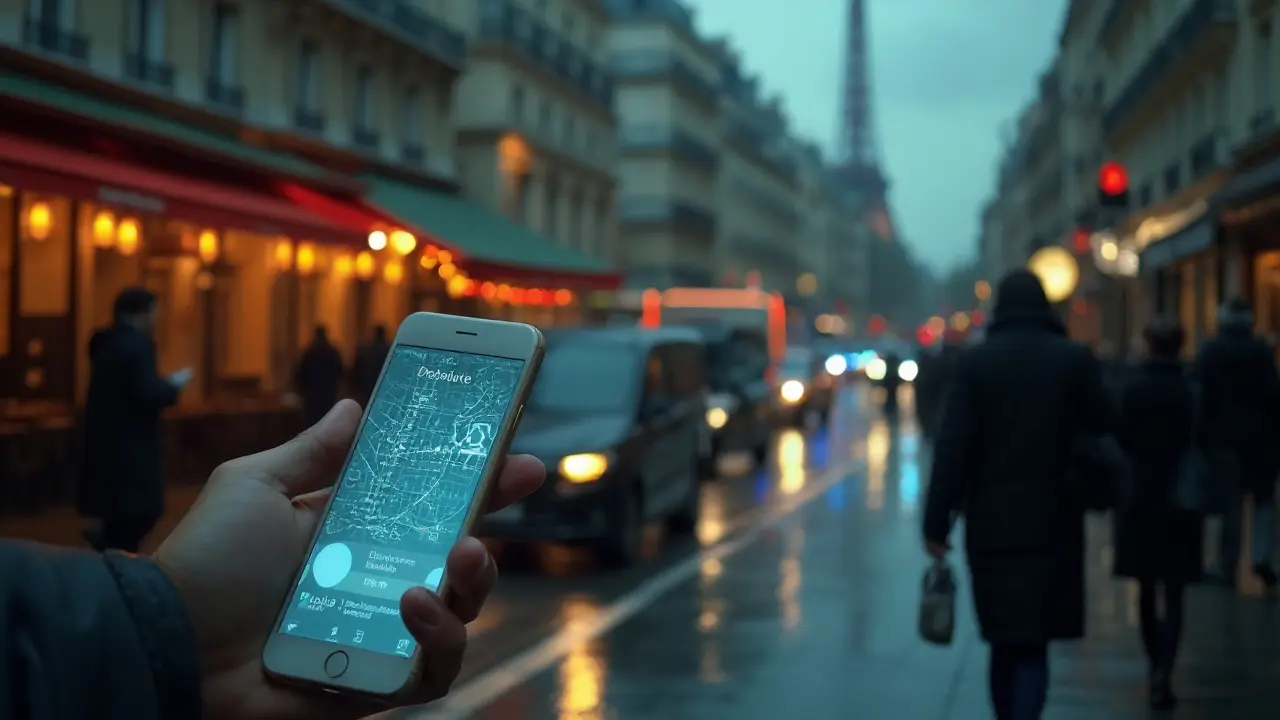TL;DR
- Demand skews toward discreet social companionship, longer bookings, and vetted introductions as Paris tourism stays strong post-2024 while locals watch budgets.
- Regulatory pressure won’t vanish: France’s 2016 client-penalty law remains; platforms face stricter EU DSA rules; crypto use tightens under MiCA KYC.
- Tech reshapes discovery and screening: private communities, verified profiles, and safer payments gain ground; AI boosts marketing but raises deepfake risks.
- Pricing drifts upward with 2025 inflation stabilizing; expect seasonal spikes around fashion weeks, trade shows, and major sports.
- Winning playbook: compliance-first operations, layered screening, diversified channels, clear consent scripts, and a calm response plan for platform takedowns.
You’re here to understand where Paris companionship services are heading, what risks are real, and how to act without drama. I’ll keep this straight: what’s changing in demand, the rules that actually bite, the tech that helps (and hurts), and the moves to make now.
What jobs are you likely trying to get done?
- See the near-term outlook for Paris (12-36 months) and whether to scale up or hold.
- Stay on the right side of French law and platform policies while protecting privacy.
- Set prices and packages that match new client behavior and seasonality.
- Use tech (verification, payments, AI) without stepping on landmines.
- Build safety into every booking: screening, venues, comms, and exit plans.
Paris is still Paris-romance, art, and a global calendar that fills hotels. But this market now runs on signals, not noise. The Paris escort industry is shifting from open marketplaces toward curated, private, and compliant ecosystems. Here’s how to read it.
What’s Changing: Demand, Money, and Tech in Paris 2025-2028
Demand first. Paris drew heavy international attention around the 2024 Olympics and then settled into a steadier rhythm. Visit Paris Region reported strong hotel revenue in 2024 and a continued recovery in long-haul travel compared with 2019 benchmarks. Corporate travel is back, though in a more compact form: fewer nights, tighter expense policies, and more “bleisure” add-ons. That mix favors longer but less frequent bookings-social dinner dates that roll into an extended evening, or daytime companionship built around museums, shopping, and events.
Local clients are split. High earners-finance, tech, entertainment-still book premium, discreet experiences. Middle-income Parisians faced cost-of-living pressure in 2023-2024. INSEE data showed inflation cooling into 2025, yet that didn’t snap back all discretionary spending. Expect locals to prefer planned, milestone bookings over spontaneous weekday picks.
Segments to watch:
- Business travelers: shorter stays, but higher willingness to pay for vetted, low-friction arrangements and hotel-friendly logistics.
- Event-driven clientele: fashion weeks, trade fairs at Porte de Versailles, Roland-Garros, and rugby/football fixtures add predictable seasonal spikes.
- Gen Z aging in: late-20s clients are more app-native, privacy-minded, and keen on clear boundaries; they respond to transparent, respectful copy.
Money and payments are evolving. Banks across the EU are rolling out instant SEPA transfers under the 2024 Instant Payments Regulation timeline, bringing real-time euro payments closer to default in 2025-2026. Expect faster deposits but stricter fraud and KYC checks. Cash remains common for discretion, yet clients now want receipts for certain expenses (dinners, shows) while keeping personal details minimal.
Crypto? MiCA (Markets in Crypto-Assets) introduced EU-wide rules-stablecoins saw early guardrails in 2024, with broader licensing kicking in through 2025. Net effect: more compliant exchanges, more KYC, less anonymous on/off-ramps. Crypto won’t disappear, but it will look like a regular fintech option rather than a secrecy tool.
Discovery and screening are moving behind closed doors. The EU Digital Services Act (DSA) made platforms liable for weak moderation; by 2024 it applied across the board, not just to Very Large Online Platforms. Expect stricter ad filters and sudden account removals if listings look non-compliant. Agencies and independents are shifting toward:
- Private sites with age gates and careful language.
- Invite-only communities with peer verification.
- Messaging that sets expectations-companionship, social time, and consent-first boundaries.
AI changes both marketing and risk. On the upside, AI helps draft bios, itineraries for dates (museum route + dinner + jazz), and photo curation. On the downside, deepfakes are now a real threat to reputation. Keep originals and EXIF data, watermark select studio shots, and hold raw files offline. If a fake pops up, you’ll need a takedown workflow.
How to read the new demand signals in 2025 (quick steps):
- Map your calendar to Paris events (fashion weeks, trade shows, tournaments). Expect rate bumps and earlier screening.
- Segment by client type: tourists, business travelers, locals. Tailor copy and packages to each segment’s clock and comfort level.
- Use one safe instant-pay option plus a cash fallback. Don’t juggle four payment tools you can’t monitor.
- Track lead quality by channel every month. If a platform brings noise or risk, pause it for 30 days and measure results.
Here’s a simple trend radar to ground decisions:
| Trend (Paris) | Impact | Probability (2025-2028) | Timing | Practical Action |
|---|---|---|---|---|
| Private, vetted introductions beat open ads | High | High | Now → ongoing | Build referral loops; keep a clean, discreet site; maintain a short invite-only list. |
| Longer bookings, fewer hops between venues | Medium-High | High | Now → 2026 | Design 3-5 hour social packages around art, dining, and live music. |
| DSA-led platform moderation swings | High | High | Now → ongoing | Use compliant language; keep a backup domain and mailing list; expect sudden takedowns. |
| MiCA squeezes crypto anonymity | Medium | Medium-High | 2025 | Offer only exchange-vetted coins; explain fees/time; no mixing wallets casually. |
| Deepfake/reputation incidents rise | Medium-High | Medium | 2025-2027 | Keep raw files; watermark select images; prepare a standard takedown email kit. |
| Tourism steady, event spikes sharper | Medium | High | Now → 2028 | Set an event calendar; add seasonal rate multipliers; book earlier. |
Examples in practice:
- Independent companion focused on culture: Offer a “Left Bank Afternoon” (gallery walk + café + bookshop). It’s clearly social, easy to pitch, and fits visitor demand.
- Agency serving business travelers: Maintain hotel-friendly protocols, pre-verify IDs, and keep a concierge channel (email/SMS) for last-minute schedule changes.

Legal, Safety, and Reputation: How to Operate Without Drama
France’s legal baseline matters. Selling sexual services by adults is not criminalized, but purchasing is penalized under Law n° 2016-444 of April 13, 2016. The French Constitutional Council upheld this framework in 2019 (decision 2019-770 QPC). The line on “procurement/pimping” remains strict-organizing another person’s paid sexual services can be prosecuted. This is why agencies frame offerings as companionship, and why language and contracts must stick to what the law allows. When in doubt, speak to a French attorney who knows this space.
The platform layer tightened too. The EU Digital Services Act (in full swing since 2024 for all platforms) pushes heavier moderation and risk assessments. Translation: ad networks, social platforms, and marketplaces will remove content first and ask questions later if they sniff policy risk. Be careful with wording, targeting, and any implication of illegal acts. Keep screenshots of compliant ads in case of disputes.
Payments and data privacy sit under separate rules. MiCA standardizes crypto compliance. The GDPR and France’s CNIL expect clear consent and minimal data retention. Keep only what you need to screen and coordinate. Delete sensitive data on a schedule. If you use ID checks, explain how they work and how long you store info.
What to do, concretely:
- Language discipline: Stick to companionship, social time, and consent-forward phrasing. Avoid wording that could be read as incitement to purchase illegal acts.
- Transparent boundaries: Publish what is and isn’t on the table. Clear, respectful language reduces disputes and helps with platform reviews.
- Receipts and ledgers: If you issue receipts for time, keep them generic (time, date, venue). File taxes lawfully; discuss specifics with a French accountant.
- Venue choices: Public, well-lit meeting points. Hotels that accept visitors without fuss. No last-minute address changes to isolated spots.
Safety checklists you can use today:
Screening (lightweight, layered):
- Low-risk: work email + LinkedIn or business card photo that matches name.
- Medium-risk: hotel and room registered to the guest name; concierge confirmation on arrival.
- Higher-risk or first-timers: deposit via traceable method; a quick video call to confirm identity and vibe.
Comms and meet logistics:
- Use a dedicated phone and inbox. Never mix personal and work devices.
- Confirm time, place, expected duration, and a simple safe word if plans change.
- Carry a small go-bag: charger, ID copy, spare cash, water, and a backup mask.
Exit and de-escalation:
- Share a live location with a trusted peer via a safety app.
- Have a friendly “call from a friend” pre-set at the 30-45 minute mark for a graceful out if the vibe is off.
- If boundaries are crossed, end the meeting promptly. Text your safety contact once you’re out.
Reputation and deepfakes:
- Store originals for all photos and videos (with metadata). Keep an offline archive.
- Use a light, tasteful watermark on select images. Not across the face-protects brand without killing aesthetics.
- Prepare a takedown pack: ID, original files, and a short legal note referencing personality rights under French law. Send to hosts promptly.
Agency vs. independent: a quick decision aid
- If you value control over schedule, branding, and pricing-and you’re comfortable with admin-independent fits.
- If you’d rather someone else handle screening, logistics, and marketing-despite higher commissions and stricter rules-agency makes sense.
- Hybrid is common: keep a small book of regulars and partner with one reputable agency for peak weeks (fashion, trade fairs).
Common pitfalls to avoid:
- Over-collecting client data. Take only what you need; explain why you need it.
- Platform overreliance. Keep an owned channel (site + email list) so one ban doesn’t end your month.
- Vague boundaries. Ambiguity invites conflict and takedowns. Clarity saves time.

Predictions and Playbook: Scenarios, Rates, and Moves to Make Now
Forecast, not fantasy. Here’s the most likely arc through 2028 based on France’s current legal posture and EU platform policy trends, plus tourism patterns:
- Next 12 months: Law stays the same; platform moderation gets stricter; tourism holds; event spikes become planning anchors.
- 12-24 months: More private communities and referral loops; agencies lean into concierge-style offerings; independents polish brand sites and newsletters.
- 24-36 months: Verification norms harden (ID or deposit for first-timers); image authenticity tools spread; AI content becomes standard but quietly used.
Scenario planning with moves attached:
| Scenario (2025-2028) | What happens | Risk level | Your move |
|---|---|---|---|
| Status quo + stricter platforms | Laws unchanged, more takedowns for borderline ads | Medium | Clean up copy; keep backup domains; diversify channels; document compliance. |
| Short crackdowns around elections/events | Police presence rises; hotels tighten guest policies | Medium-High | Pre-book venues; carry alternate meeting spots; extend screening windows. |
| Partial liberalization push stalls | Public debate, no legal shift in near term | Low-Medium | Stay disciplined; avoid reactive marketing; keep lawyers/accountants on speed-dial. |
| KYC-heavy payments become default | Instant SEPA common; crypto via compliant exchanges only | Medium | Offer two trusted methods; publish a clear payment policy; avoid sketchy wallets. |
Pricing without guesswork. A simple way to set rates in Paris now:
- Baseline: pick a calm-month hourly rate you’re comfortable quoting repeatedly.
- Inflation factor: use INSEE’s latest yearly inflation estimate (example: 2%). Multiply baseline by 1.02 for the next year.
- Event multiplier: add 10-25% during Paris Fashion Week, major trade shows, and finals weekends-publish these dates in advance.
- Risk/effort factor: add 10-20% for late-night starts, long-distance travel across the city, or short-notice bookings.
Example: If your baseline is €350/h, 2025 inflation at ~2% nudges that to ~€357. Fashion Week? Add 15% → ~€410. Late-night start (+10%) → ~€451. Round to a clean number and state it plainly.
Packaging beats haggling. Paris clients respond well to clear social experiences-think “Art + Dinner” 4-hour blocks or “Matinee + Jazz” evenings. Make it easy: what’s included (time, venue types, dress code), what’s not (after-parties beyond scope, travel outside the city center unless pre-arranged).
Marketing that survives moderation:
- Lead with lifestyle and logistics: neighborhoods, cuisine, culture, what you enjoy doing together in public spaces.
- Use high-quality, authentic photos-Paris backdrops help but keep locations tasteful and non-identifiable.
- Build an opt-in list. A monthly note with your calendar (busy dates, travel plans) keeps regulars engaged.
AI: use it, don’t lean on it. Draft your copy with AI, then rewrite in your voice. Keep a small library of “safe” phrases that pass platform filters. For photos, use AI only to retouch lighting and color; avoid heavy face edits that confuse verification later.
Your compliance toolkit (small but mighty):
- One-page policy sheet: screening basics, deposits, cancellations, and privacy. Send it once a booking is confirmed.
- Proof-of-work archive: dated screenshots of ads, website copies, consent messages, and bookings (no unnecessary personal data).
- Incident log: note any issues and how they were resolved. Patterns help refine screening.
Pitfalls to sidestep in 2025-2026:
- Jumping to new platforms without reading their adult-content and DSA compliance pages. Saves you surprise bans.
- Keeping images only on your phone. One lost device shouldn’t erase your brand assets.
- Agreeing to last-minute venue changes to private residences outside the center with no references. If your gut says no, trust it.
FAQ
Q: Is the 2016 French law likely to change soon?
A: Short answer: not likely in the next year. Law n° 2016-444 penalizing buyers has political backing, and the Constitutional Council upheld it in 2019. Debate continues-NGOs like Amnesty International and UNAIDS support decriminalization for health and safety-but no firm legislative shift is queued for 2025.
Q: Can I accept crypto to stay private?
A: You can, but privacy is thinner now. Under MiCA, regulated exchanges in the EU apply full KYC. If you accept crypto, stick to mainstream coins via reputable platforms, explain fees and refund rules, and keep records for your accountant.
Q: What’s the safest first booking format?
A: A daytime public meet in a busy area or a reputable hotel lounge. Keep it short (60-90 minutes), add a pre-meet call, and use your check-in texts with a trusted friend.
Q: How do I handle a takedown or account ban?
A: Stay calm. Document the notice, pull your latest backups, and file an appeal with exact policy language. Switch to your backup domain and mailing list meanwhile. Rebuild quietly; avoid public fights you can’t win.
Q: Should I join an agency or stay independent?
A: If you like control and can manage admin, independent works well. If you want less admin and more guardrails (screening, client flow), a reputable agency helps-especially during peak events.
Next steps and troubleshooting
- Newcomer, limited budget: set up a clean one-page site, two payment methods, and a simple screening policy. Offer two well-defined social packages. Start with one platform only.
- Experienced, too many no-shows: require deposits for first-timers. Use event-week pricing and confirm hotel details 2-3 hours ahead.
- Agency owner, platform headaches: rewrite listings with neutral, consent-forward language. Train staff on DSA-friendly phrasing and keep a rotating gallery of compliant images.
- Spooked by deepfakes: watermark select images, store originals offline, and prepare a takedown email template referencing French personality rights and EU platform obligations.
- Unsure about taxes: talk to a French accountant familiar with independent services. Keep simple ledgers and don’t stockpile sensitive client data you don’t need.
Paris won’t stop being Paris. The market is maturing-more discretion, better screening, clearer boundaries. If you keep your operations tight, your language clean, and your safety playbook real, you’ll navigate 2025-2028 with fewer surprises and better nights.

